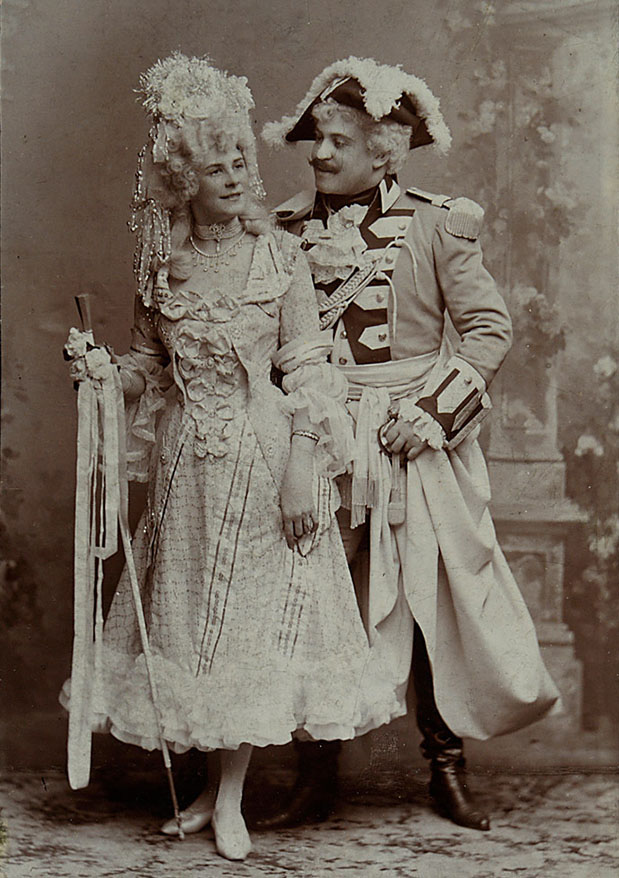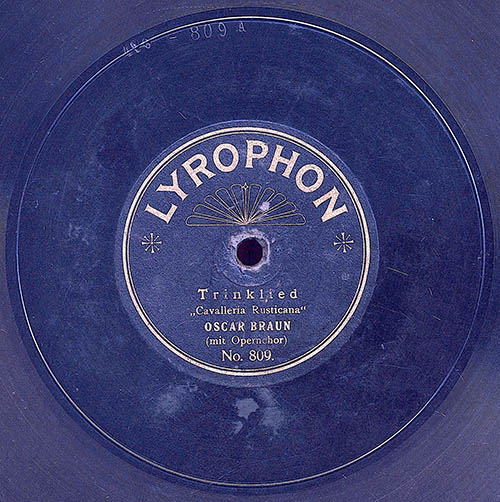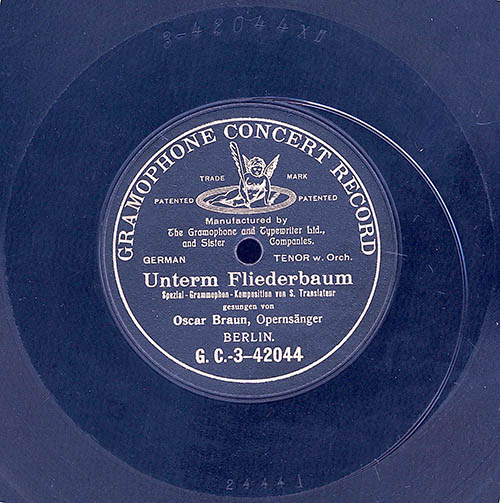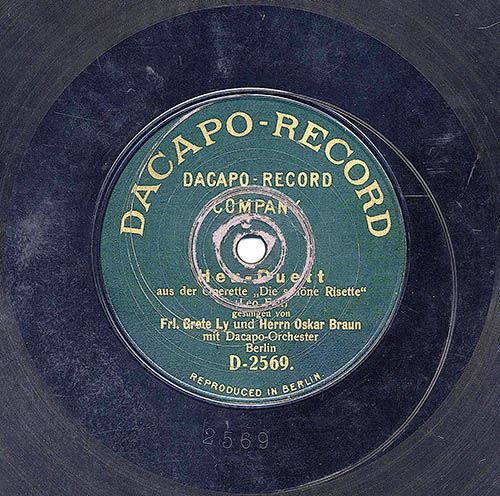The son of an industrialist, Oskar Braun (sometimes you'll read "Oscar", following the old German spelling) began
his career as the private operetta tenor of the Esterházy
princes. His debut for a wider public followed in 1889 at the Carltheater in Vienna, again in operetta; he added opera to
his repertory only during his next tenure, in Cologne from 1891 to 1895.
After a period in Frankfurt (1895–98), he went to Paris for further vocal studies, then he moved to Berlin, where he
appeared in opera and operetta both at the Theater des Westens and the Krolloper. In 1900 and 1901, he appeared also in his
native Vienna (Theater an der Wien, Raimundtheater), and in the following years in Leipzig, Dresden, Schwerin and Brno. But
basically, he stayed in Berlin: at the Centraltheater from 1903 to 1907, at the Neues Operettentheater from 1907 to 1911.
He had by then abandoned opera and entirely focused on operetta. He even founded his own touring operetta company, with whom
he visited, for instance, Amsterdam in 1912/13. From 1915 to 1920, he sang operetta at the Komische Oper Berlin. The
Kurtheater in Freudenstadt seems to have been the last stage of his career (1922/23).
His repertory had encompassed parts like Gomez (Das Nachtlager von Granada by Konradin Kreutzer), Peter Iwanow (Zar
und Zimmermann), Lyonel, Fra Diavolo, Manrico, Alfredo, Turiddu, Roméo, Faust, Don José, Eisenstein, Barinkay.
Albeit Jewish, Braun was still living in Berlin in 1941. He must then have escaped to Hungary: his German death certificate,
issued in 1948 in the course of the official registration of wartime victims, states that he had died on 15 April 1944 in the
concentration camp Budapest. Now there was no such concentration camp; what the 1948 registrar probably meant to say was that
Braun was killed during the imprisonment and ghettoization of Jews put into operation by the Hungarian police after the Nazis
had annexed the country on 19 March 1944.
Reference 1; reference 2:
Kutsch & Riemens



